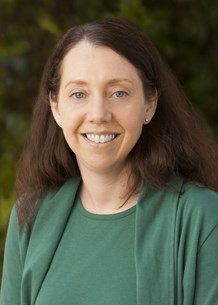Meeting
2017 ASCO Annual Meeting

Stanford School of Medicine, Stanford, CA
Allison W. Kurian , Gregory Idos , Charite Nicolette Ricker , Julie Culver , Duveen Sturgeon , Kerry Kingham , Rachel Koff , Katrina Lowstuter , Nicolette M. Chun , Courtney Rowe-Teeter , Katlyn Partynski , Anne-Renee Hartman , Brian Allen , John Kidd , Meredith Mills , Christine Hong , Kevin McDonnell , Uri Ladabaum , James M. Ford , Stephen B. Gruber
Background: Sequencing more genes increases the chance of finding a pathogenic mutation and/or a variant of uncertain significance (VUS). Little is known about potential harms of multiplex testing for cancer risk, such as unwarranted surgery or adverse psychological effects. Methods: We conducted a prospective trial of sequencing 25 genes: APC, ATM, BARD1, BMPR1A, BRCA1, BRCA2, BRIP1, CDH1, CDK4, CDKN2A, CHEK2, EPCAM, MLH1, MSH2, MSH6, MUTYH, NBN, PALB2, PMS2, PTEN, RAD51C, RAD51D, SMAD4, STK11, TP53. Patients were eligible if they met standard testing guidelines or predictive models estimated ≥2.5% mutation probability. Participants were surveyed 3 months post-test: the Multidimensional Impact of Cancer Risk Assessment (MICRA) scale measured distress, uncertainty and positive experiences. We report on the fully accrued trial (N = 2000). Results: 1998/2000 (99.9%) participants currently have reported results: 12.1% tested positive for a pathogenic mutation (Pos), 34.5% had VUS only and 53.5% tested negative (Neg). Median age was 51, 81% were female, 40% Hispanic, and 72% had a cancer history. Self-reported preventive surgery rates were low (mastectomy 9.3%, hysterectomy 1.5%, oophorectomy 1.6%), with no difference between VUS and Neg patients (p = 0.346). Most patients never or rarely had thoughts of cancer affecting daily activities (Pos 59.5%, VUS 66.9%, Neg 71.0%), never regretted testing (Pos 84.1%, VUS 90.0%, Neg 93.6%), and wanted to know all results, even those that doctors do not fully understand (Pos 81.7%, VUS 78.8%, Neg 77.1%). Pos patients had higher MICRA distress and uncertainty scores than VUS and Neg patients, whose distress and uncertainty scores did not differ significantly (p = 0.165, p = 0.129). Relatives of Pos patients completed genetic testing (30.4%) more often than VUS (5.8%) or Neg patients (5.1%, p < 0.001). Conclusions: After multiplex testing of 2000 diverse patients, few reported preventive surgery at 3 months; VUS patients had no more distress, regret or uncertainty than Neg patients. Pos patients most often advised relatives to test, suggesting that participants understood the implications of test results. Longer-term follow-up of test-related outcomes is underway. Clinical trial information: NCT02324062
Disclaimer
This material on this page is ©2024 American Society of Clinical Oncology, all rights reserved. Licensing available upon request. For more information, please contact licensing@asco.org
2017 ASCO Annual Meeting
Poster Session
Cancer Prevention, Genetics, and Epidemiology
Prevention, Risk Reduction, and Genetics
Germline Genetic Testing
NCT02324062
J Clin Oncol 35, 2017 (suppl; abstr 1576)
10.1200/JCO.2017.35.15_suppl.1576
1576
234
Abstract Disclosures
2021 ASCO Annual Meeting
First Author: Silvia Gasperoni
2023 ASCO Annual Meeting
First Author: Jose Luis Rodriguez Olivares
2022 ASCO Gastrointestinal Cancers Symposium
First Author: Jose Luis Rodriguez Olivares
2016 ASCO Annual Meeting
First Author: Allison W. Kurian